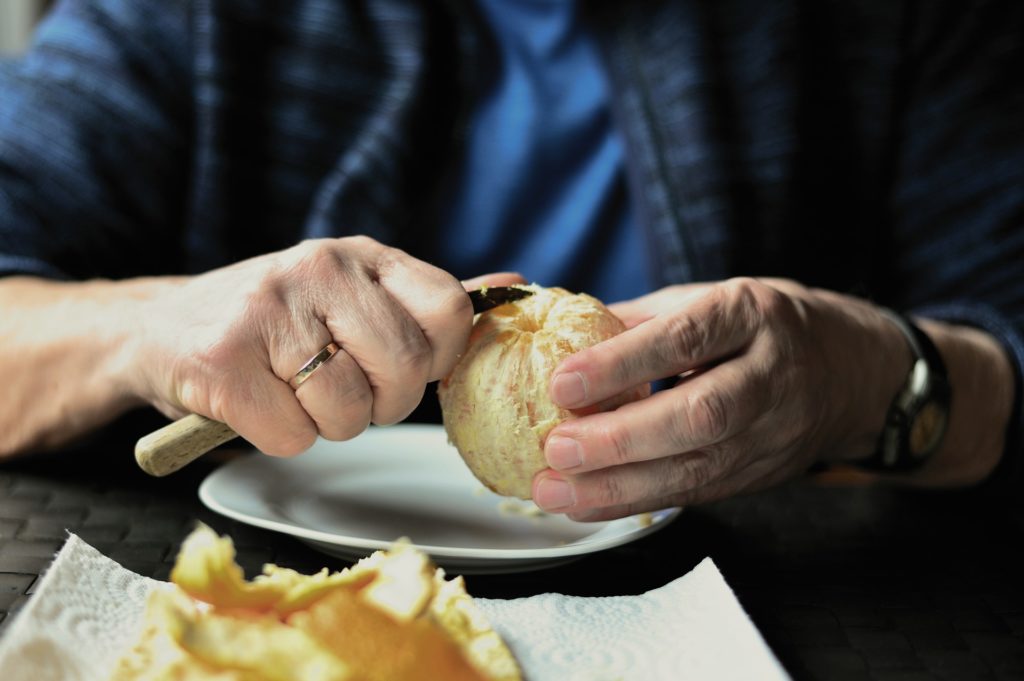Nutrition & Age: 5 Things to Consider as You Grow Older
We have lots of physiological needs to consider when growing older such as occupational adjustments, changes in sleep patterns and modifying what we wear for comfort but we shouldn’t forget that changes occur in our dietary needs. Our food and fluid intake should be carefully monitored and adapted to suit our health circumstances. With this in mind, we’ve outlined some considerations regarding nutrition that should be helpful if you’re entering older age or caring for an elderly relative or friend.

Changes in Eating Habits
As we tend to eat less as we get older and our metabolisms alter it’s important to ensure we are taking insufficient nutrients. When we’re older, we require fewer calories reflecting in us eating less and subsequently, we may need to make dietary adjustments and eat different foods to increase essential nutrient intake. In providing a range of useful health-related content to seniors, KelseyCare Advantage details specifically about how eating changes when you age. In doing so, the site highlighted links between health issues and foods we consume and what could be beneficial for the prevention of disease. Accessibility to food can be more challenging for older adults who may be on lower incomes and have restricted shopping, so choosing strategically what goes into our baskets is recommended.
Foods to Consider
Particular nutrients that become more important as we age include protein, calcium, vitamin D and vitamin B12 so including foods rich in these ingredients is essential. Proteins can help maintain muscle and improve strength and as we move less with age, we do experience muscle loss. Eating lean meats, eggs, nuts and seeds that are low in fat will be a great source of protein for seniors. Calcium and vitamin D are vital for bone health and staving off conditions such as osteoporosis. The National Library Of Medicine explains the importance of calcium and vitamin D for elderly adults and offers information on levels required for a healthy diet. A diet high in fruit and vegetables with five or more servings a day, moderate animal protein and low-fat dairy foods can provide a balanced solution for these nutrients. Adding fish to weekly meal plans will increase vitamin B12 which is important for blood health and nerve cell function.
Beverages & Hydration
Hydration is vital at any age but for the elderly, becoming dehydrated can be very detrimental to their health. Sustaining hydration is key to keeping electrolytes balanced, kidney function and blood volumes normal plus it aids digestion and the transportation of nutrients. Our thirst sensation declines as we age so seniors can become unknowingly dehydrated. Drinking plenty of water is the obvious and healthiest fluid of choice and often sipping water or having a bottle by your side is an easier way to consume it. Also, considering foods that have a high water content could be helpful such as watermelon, cucumber, lettuce or soups.
Supplements
For those with special dietary requirements or lifestyle diets, foods that are often eliminated from our meals may be primary sources of important nutrients. In instances like this, there are supplementary vitamins and minerals available for the older generation but these need to be carefully considered. What’s best for you may not be best for another as highlighted in The National Institute of Aging supplements article which recommends talking to your doctor or dietitian to obtain the best advice.
Why We May Eat Less
To conclude, it might be worth noting the reasons why we eat less as we enter old age so we can recognize these contributing factors in ourselves or others. We use less energy as time passes so the need for food decreases which impacts the levels of nutrients we consume. Many elderly people suffer tooth loss or wear dentures, this may impede our ability to eat. The hormone that controls our sense of fullness is higher during senior years, so we may not realize our intake decreasing. Medications and underlying health conditions can affect appetite as well as loss of taste and smell. In these instances, we can try and establish a healthy snack habit by eating foods such as nuts, boiled eggs or yogurts.
Additional Resources: Caring Senior Nutrition Guide
Thank you for reading, and please return to Dietitian In Your Kitchen again for more helpful content on health and nutrition.
Subscribe to our newsletter
Get seasonal recipes, new trends in food and fitness, and dietitian jokes. There’s no spam, and you can unsubscribe at any time.
